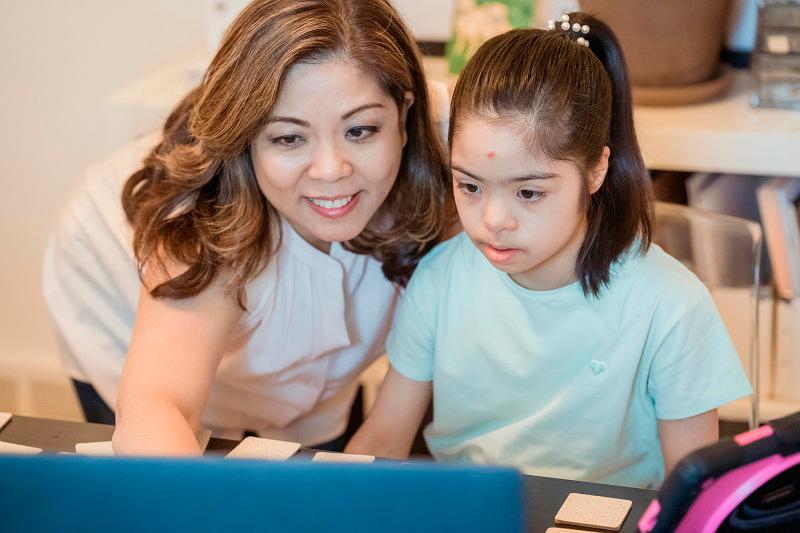IN the quiet corners of classrooms and the determined eyes of children facing extraordinary challenges, education has the power to rewrite destiny.
Each child, regardless of ability, carries within them a universe of potential – waiting to be unlocked, yearning to be understood.
My journey is deeply personal – both as a mother of a child with special needs and as the principal for neurodiverse children.
I have lived the reality of this challenge from two perspectives. At home, I experience the daily triumphs and struggles of nurturing a child who learns differently. In the classroom, I have seen countless children discover their unique strengths, watching them transform from marginalised individuals to confident learners.
These are not just students; they are pioneers navigating a world that has too often overlooked their capabilities.
Malaysia stands at a critical crossroad. Our Budget 2025, allocating RM1.3 billion for persons with disabilities, represents more than a financial commitment – it is a moral statement about who we aspire to be as
a society. Yet, this allocation, while positive, is merely a whisper when we need a resounding declaration of support.
The truth is stark: our growing needs far outpace our current resources. Funding alone cannot bridge this gap. What we require is a fundamental reimagining of special needs education – one that goes beyond infrastructure and touches the very heart of human potential.
Strengthening training for inclusive education
Recognising the importance of special- needs education, several public universities and teacher training institutes in Malaysia offer a Bachelor’s
in Education with a specialisation in
this field.
While this is commendable, the shortage of specialised teachers remains a pressing issue that needs continued attention.
According to the Department of Statistics Malaysia (DOSM) in 2023, there were 736,607 persons with disabilities, making up 2.2% of Malaysia’s population. However, only a fraction of them are enrolled in government schools. Many children in rural areas remain at
home due to limited accessibility, infrastructure, awareness and diagnosis.
Currently, Malaysia has more than 34 special education schools, primarily catering to students with visual and hearing impairments.
Additionally, public primary and secondary schools offer the special education integration programme (PPKI), which provides dedicated classrooms for students with special needs. However, it does not fully address the diverse requirements of the special needs community.
Data from DOSM’s 2023 report also highlights a concerning trend in special education staffing. The number of primary-level special education teachers declined by 1.0% to 826 teachers while secondary-level saw a slight increase of 2.4% to 473. Despite this growth, the numbers remain insufficient to meet the rising demand.
Malaysia is not alone in facing challenges in the special-education sector. Thailand, for example, operates 49 special education schools and the Philippines, with 805 such schools, still struggles with a significant shortage of teachers. Similarly, England has seen a rising number of students with special educational needs, underscoring the growing demand.
Although Malaysia maintains an ideal student-teacher ratio of 6:1 in special education, the overall shortage of trained educators and limited resources indicate that infrastructure investments alone, such as the additional 50 PPKI projects on top of the existing 2000 PPKI in 2023, cannot fully meet the needs of these students.
Addressing the shortage of specialised teachers requires more than just increasing numbers; it demands equipping educators with specialised training to create truly inclusive classrooms.
Despite specialised education programmes in universities, the demand for trained special-needs teachers far exceeds the supply. As a result, many trainees and newly graduated educators enter the field without a strong understanding of the diverse needs of special-needs students.
Specialised training equips educators with effective instructional strategies, enabling them to better understand the unique challenges faced by students
with special needs.
However, to sustain truly inclusive teaching, continuous professional development is essential.
Role of government and private sector
Malaysia has the resources to prioritise strategic professional development for special-education teachers. That said, existing teacher training programmes need to be restructured to align with
the diverse needs of students with disabilities.
Collaboration between the Education Ministry, private education providers, NGOs and universities can help build a structured framework for upskilling teachers in special-education needs.
Government policies that incentivise private sector participation, such as tax incentives for companies investing in inclusive education or funding specialised teacher training, could encourage more organisations to contribute meaningfully to special-needs education.
The private sector can also play a larger role by funding pilot projects
and targeted initiatives.
Recent collaborations, such as the 2024 partnership between Able Perfect Sdn Bhd and Yayasan Didik Negara
to establish multisensory classrooms, highlight the potential impact of targeted investments in learning environments. Expanding such collaborations could benefit more schools.
Conclusion
Inclusive education is a fundamental right that benefits society as a whole.
By embracing diversity, fostering empathy and building stronger social connections, inclusive education lays the foundation for a more equitable and compassionate future for all.
Without immediate and focused action, the gaps in special-needs education will continue to widen.
The cost of failing to act will be far greater, not only for students with disabilities but for the future of an inclusive Malaysia.
If we truly want a society that values every individual’s potential, we must ensure that inclusive education becomes a priority now.
The longer we wait, the more we risk leaving behind an entire generation.
Dr Sunitha Sivakumaran is the principal of Taarana, a school dedicated to supporting children with developmental delays and special education needs. Comments: letters@thesundaily.com









